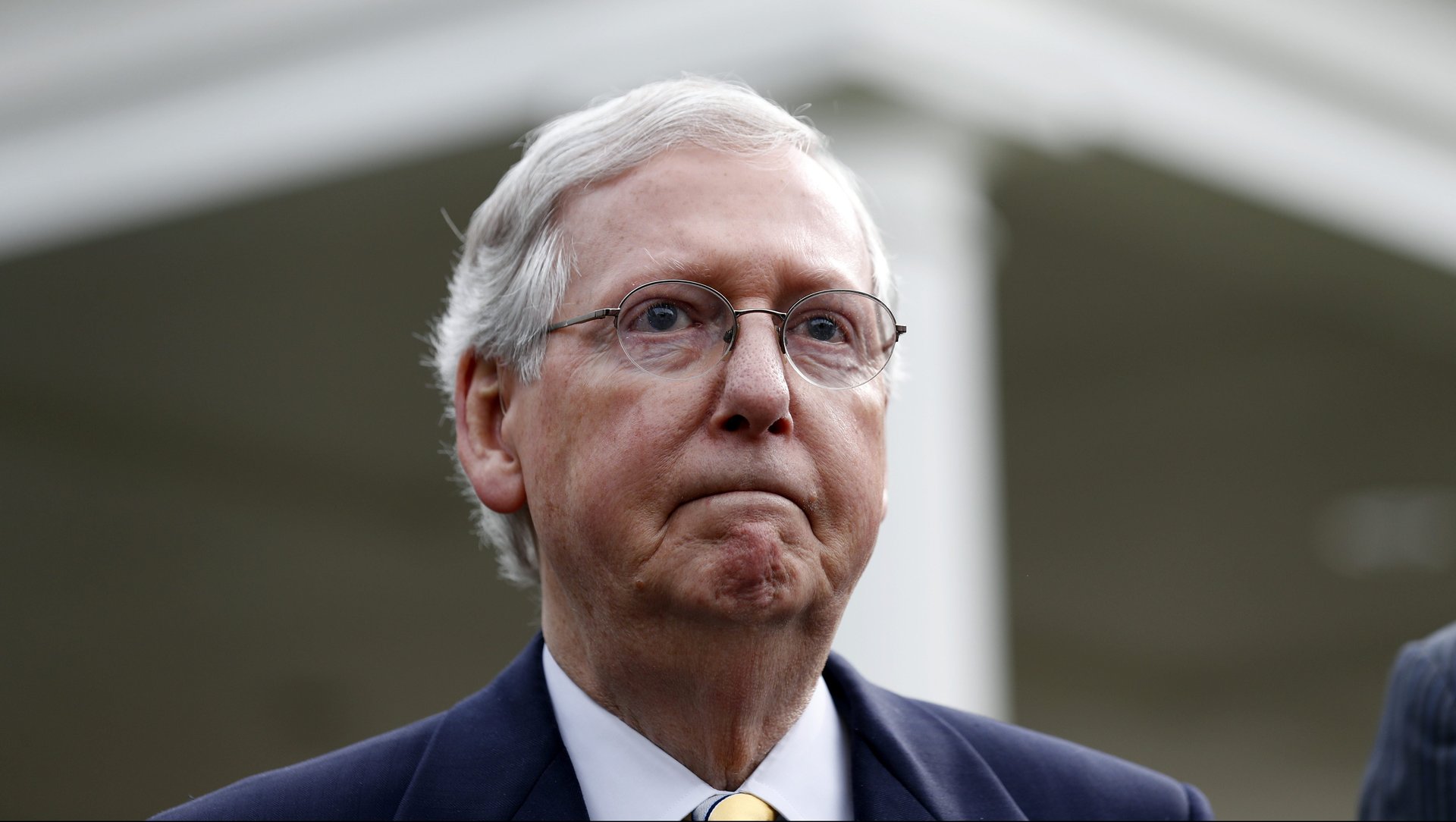A “skinny repeal” of Obamacare could bring the US health-care system to “almost complete collapse”
The US Senate has voted to open debate on the Republican party’s health-care proposals for replacing the Affordable Care Act, a.k.a. Obamacare. According to NBC’s congressional reporter, the Senate’s next step is to vote on a full repeal of Obamacare—which will probably fail without a proposed bill to replace it. Then it will try an amended version of the Better Care Reconciliation Act, the latest Senate proposal; this will also likely fail since it hasn’t yet been scored by the Congressional Budget Office and thus needs 60 votes to pass rather than just 51.


The US Senate has voted to open debate on the Republican party’s health-care proposals for replacing the Affordable Care Act, a.k.a. Obamacare. According to NBC’s congressional reporter, the Senate’s next step is to vote on a full repeal of Obamacare—which will probably fail without a proposed bill to replace it. Then it will try an amended version of the Better Care Reconciliation Act, the latest Senate proposal; this will also likely fail since it hasn’t yet been scored by the Congressional Budget Office and thus needs 60 votes to pass rather than just 51.
So what then?
The likeliest option is that senators will vote on a bill that gets rid of just parts of Obamacare—the individual and employer mandates, which impose penalties on individuals and businesses above a certain size that refuse to buy health insurance. Abolishing these mandates is considered a “skinny repeal.”
What will that mean?
Josh Bivens, research director at the Economic Policy Institute, says it would be catastrophic. Canceling the employer and individual mandates would, according to a CBO estimate, lead to 15 million people losing health insurance over the next decade. That’s not as bad as a complete repeal (32 million) or as the various proposed versions of the Republican health-care bill (22-23 million). Indeed, notes Bivens, the skinny repeal preserves Obamacare’s expansion of Medicaid, the government health program for the poor, and “most of the people who got coverage [under Obamacare did so] through Medicaid expansion,” so those, the most vulnerable, are protected.
But, Bivens says, doing away with the mandates would bring the health-care system to “almost complete collapse.” This is because letting people freely opt out of buying insurance creates prohibitive premiums for everyone else.
Many healthy people who were uninsured before Obamacare are currently buying insurance because of the mandates. Since they don’t claim many medical expenses they lower the risk pool for insurers, offsetting the overall cost. If they opt out, insurance companies are left covering more people with medical problems and high expenses.
There’s more, explains Bivens. The “skinny option” appears to maintain the Obamacare provisions that ban an insurer from refusing coverage to people with pre-existing conditions or from charging different premiums to different people depending on their health. That means there’s very little incentive for the healthy to buy insurance, since they know they could just buy into a policy for the same price if they ever get sick.
To make up for that, insurers will have to raise premiums. That in turn will likely discourage even more people from buying insurance. That’s how the CBO arrives at its figure of 15 million people losing insurance over 10 years. And the rest will be paying through the nose to keep it.